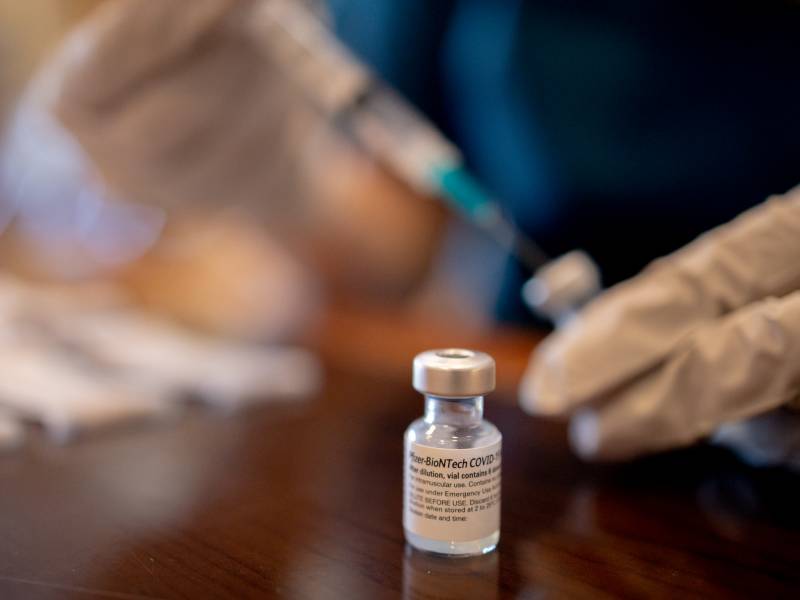This story has been updated.
In a surprising vote, a panel of advisers to the Food and Drug Administration recommended against approval of a booster dose of the Pfizer-BioNTech COVID-19 vaccine for people 16 years and older.
The 16-2 vote against broad use of the booster, which would be given about six months after completion of the two-dose immunization regimen, dealt a setback to Pfizer and complicates the FDA’s approach to boosters.
After a brief intermission following the rejection, FDA officials returned to the meeting with a revised booster question. The panel then voted 18-0 in support of the agency authorizing a booster shot of the vaccine for people 65 and older or at high risk of severe COVID-19.
The FDA then polled the panel members for advice on other groups of people who might be considered for a booster. Though not an official vote, the panel unanimously supported authorization of a Pfizer booster dose for health care workers or others at high risk of occupational COVID-19 exposure.

9(MDAxOTAwOTE4MDEyMTkxMDAzNjczZDljZA004))
